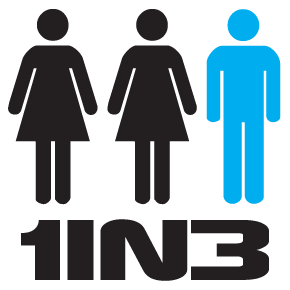New Anglicare WA Report finds over half of DV victims are male for some forms of abuse

Anglicare WA have just released their Community Perceptions Report 2014: Family And Domestic Violence.
The report found that between 18 per cent and over 50 per cent of victims of domestic and family violence were male, depending on the kinds of violent and abusive behaviours surveyed.
Percentage of victims that were male for different behaviours:
Isolating behaviours - over 50% (exact figures not published)
Shamed on social media - over 50% (exact figures not published)
Being pushed, slapped, punched, choked or kicked - 42.6%
Being induced to physical or emotional exhaustion - 41.0%
Mind games and manipulation - 41.0%
Being stalked or followed - 35.7%
Forced sexual contact or coercion - 18.2%
The report also found that between 14 per cent and 35 per cent of perpetrators of domestic and family violence were female, depending on the kinds of violent and abusive behaviours surveyed.
Percentage of perpetrators that were female for different behaviours:
Threats, put-downs, insults or shouting at someone - 35.0%
Belittling someone’s views or opinions- 32.0%
Verbally shaming, humiliating or degrading someone - 23.5%
Being overly critical of daily things - 23.1%
Threatening physical violence or harm - 22.2%
Played mind games on another - 14.3%
Despite this overwhelming evidence that male victims and female perpetrators of domestic and family violence make up a substantial proportion of affected persons, they were completely excluded from Anglicare WA's recommendations - as if they didn't exist at all.
Here are some quotes from the Report's recommendations (our emphasis):
"A scoping and mapping exercise in Western Australia, to determine where the needs are in terms of service provision for men’s behaviour change programs."
"The provision of adequate resources and funding for services by state and federal government, in order to promote appropriate early intervention opportunities to men who use violence and abuse against their families."
"The alignment of any men’s behaviour change program with standards associated with evidenced based best practice principles and cultural competence."
"Abusive men are capable of using non-abusive ways of relating. Our community needs to promote values associated with high expectations of evidenced based behaviour change."
"Anglicare WA advocates that long-term strategies and partnerships in relation to crisis, medium and sustainable accommodation need further funding and resourcing to provide more safe places for women and children."
You can download the report from here.

